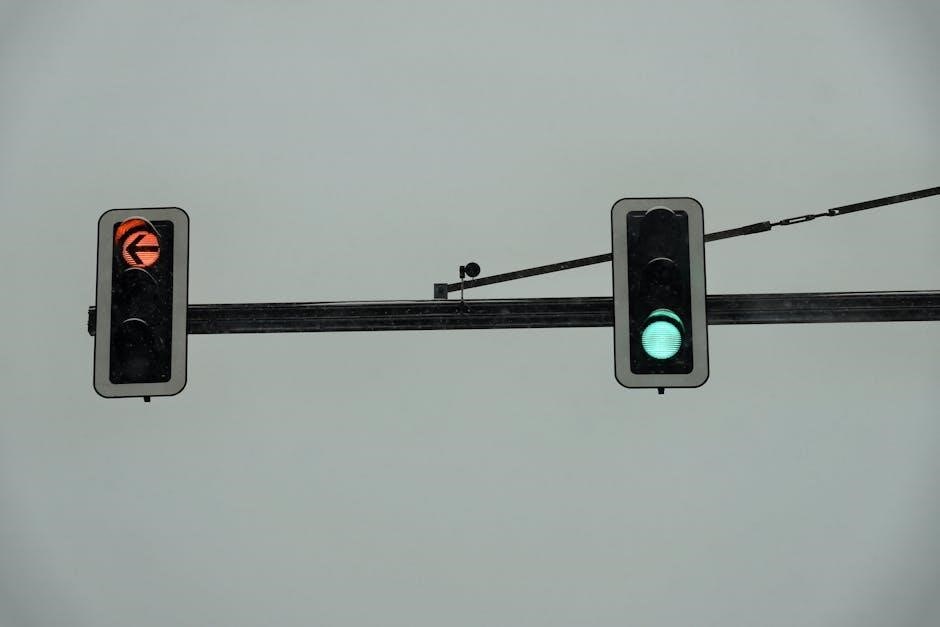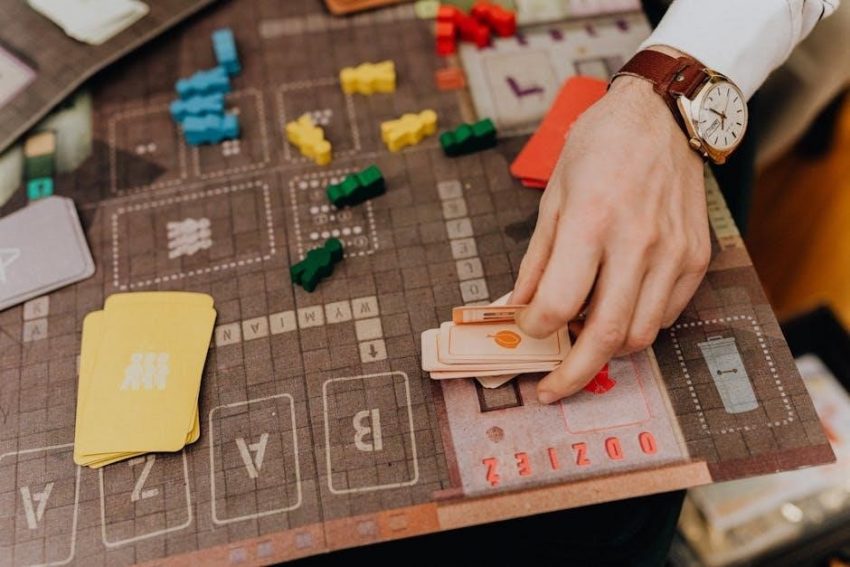Battletech is a tabletop wargame with detailed rules for mech combat, strategy, and universe immersion. The core rules cover movement, combat, and advanced mechanics, providing a rich experience for players.

Overview of Battletech and Its Ruleset
Battletech’s ruleset is detailed and expansive, covering mech combat, strategy, and universe-specific mechanics. The core rules are found in key resources like the Players Guide and Total Warfare, which provide foundational gameplay mechanics. Additional books like Advanced Rules and Mercenaries expand on customization and campaign play. The system emphasizes strategic thinking, resource management, and tactical execution, making it both complex and rewarding. Players can explore various aspects, from designing mechs to managing mercenary units, ensuring a deep and immersive experience. The ruleset is supported by tools like MekHQ for campaign management, enhancing overall gameplay depth.
Key Resources for Battletech Rules
The primary resources for Battletech rules are the Players Guide and Total Warfare, which outline core gameplay mechanics. Additional resources like the Advanced Rules and Mercenaries expand on customization and campaign play. Tools such as MekHQ offer campaign management and integration with MegaMek for battles. The BattleTech: Mercenaries Kickstarter and official PDFs provide updates and expansions. These resources ensure comprehensive understanding and immersion in the game’s intricate ruleset, catering to both new players and seasoned veterans aiming to master Battletech’s strategic depth and complexity.

Core Combat Rules
Battletech’s core combat rules cover initiative, weapon systems, and damage resolution. The Total Warfare PDF provides detailed mechanics, ensuring balanced and strategic gameplay for players. Key resources include rulebooks and online guides.
Movement and Positioning
Movement in Battletech is grid-based, with mechs navigating terrain like forests, hills, and urban areas. The Total Warfare PDF outlines rules for terrain effects, such as reduced movement or damage. Piloting skill checks determine stability, while initiative decides turn order. Facing direction is crucial, as rear attacks gain bonuses. Players must balance speed and positioning to avoid overheating or being flanked. Advanced rules include jumping and hovering, adding depth to mech maneuverability. Mastering movement is key to tactical success, as positioning often dictates battlefield outcomes. Proper use of terrain and initiative enhances strategic gameplay.
Attack and Damage Resolution
Attack and damage resolution in Battletech involves rolling 2D6, with modifiers affecting success. The Total Warfare PDF details critical hits, which deal severe damage. Armor absorbs damage before internal structure loss. Rolling a 12 on 2D6 is an automatic critical hit. Modifiers like weapon type, range, and pilot skill influence rolls. The number of hits determines damage application. Armor reduces damage, but once breached, internal systems are vulnerable. Proper damage tracking and application are vital for realistic gameplay. This system balances strategy and randomness, ensuring dynamic combat scenarios. Understanding these rules enhances tactical decision-making and battlefield effectiveness.

Advanced Gameplay Mechanics
Battletech’s advanced mechanics include piloting skill checks, heat management, and initiative systems. These add depth to gameplay, requiring strategic decisions and balancing resource usage for optimal performance.
Piloting Skill Checks and Initiative
Piloting skill checks in Battletech determine a MechWarrior’s ability to maintain control during critical moments. A failed check can lead to a Mech falling or losing balance, while success allows for precise maneuvers. Initiative determines the order of actions in each turn, with higher-skilled pilots acting first. This system adds a layer of strategy, as players must balance aggressive moves with the risks of overextending their Mech. Proper management of initiative and skill checks can turn the tide of battle, making them essential components of advanced gameplay mechanics.
Heat Management and Overheating
Heat management is a critical aspect of Battletech, as excessive heat can lead to reduced performance, damage, or even complete system shutdown. Mechs generate heat from weapon firing, movement, and physical attacks. If heat exceeds capacity, the Mech risks overheating, leading to shutdown or internal damage. Players must balance weapon usage and movement to avoid excessive heat buildup. Heat sinks can mitigate this, but proper strategy is essential. Managing heat effectively ensures optimal performance and prevents costly penalties, making it a key factor in successful Mech operations and tactical decision-making during battles.

Customization and Strategy
Customization and strategy are core to Battletech, allowing players to design and upgrade Mechs, adapt tactics, and make informed decisions to outmaneuver opponents effectively.
Designing and Upgrading Mechs
Designing and upgrading Mechs is a critical aspect of Battletech, allowing players to tailor their machines for specific roles. The rules provide detailed guidelines for constructing Mechs, balancing weapons, armor, and heat sinks. Upgrades can enhance performance, but excessive modifications risk overheating or reduced mobility. Strategic decisions, such as choosing weapons and equipment, directly impact battlefield effectiveness. Players can also integrate advanced systems, like ECM or CASE, for added versatility. These customization options encourage creative builds, making each Mech unique and suited to its pilot’s style. The process requires careful planning to optimize efficiency and survivability in combat scenarios.
Advanced Weapon Systems and Equipment
Battletech offers a wide array of advanced weapon systems and equipment, each with unique capabilities and strategic implications. From high-damage missile systems to precise energy weapons, players can customize their Mechs for specific combat roles. Equipment like ECM, CASE, and Artemis IV enhance survivability and lethality, while specialized gear such as Narc Missile Beacons and TAG lasers enable coordinated attacks. Advanced heat management systems, like double heat sinks, allow for sustained firepower without overheating. These systems require careful integration into a Mech’s design, balancing firepower, durability, and mobility to maximize battlefield impact. Proper utilization of these tools can turn the tide of any engagement.

Campaign Management and Scenarios
Campaign management involves overseeing mercenary units, tracking resources, and designing scenarios with clear objectives. Tools like MekHQ enhance campaign depth, allowing detailed management and immersive storytelling.
Mercenary Management and Unit Composition
Mercenary management is crucial for success, involving unit composition, resource allocation, and strategic planning. Players design their warband, balancing mechs, weapons, and skills for optimal battlefield performance. Tools like MekHQ provide detailed management, tracking finances, experience, and equipment. Effective mercenaries adapt their roster to mission requirements, ensuring versatility and strength. Managing unit morale and reputation also plays a role in long-term campaign success, as a well-organized and skilled force attracts better contracts and resources.
Scenario Design and Objectives
Scenario design is a cornerstone of Battletech, allowing players to craft unique missions with clear objectives. These can range from capturing key assets to destroying enemy forces. Designers must balance difficulty, terrain, and unit composition to ensure engaging gameplay. Urban combat rules and battlefield assets, as detailed in Total Warfare, add depth to scenarios. Using tools like Google Maps for terrain inspiration and MekHQ for mission integration enhances the experience. Objectives should align with campaign narratives, providing purpose and immersion for players. Clear communication of goals ensures all participants understand their roles and the path to victory.

Additional Resources and Tools
Essential tools include MekHQ for campaign management and MechWarrior Cards for special abilities, enhancing gameplay depth and strategy with detailed rules and immersive features.

MechWarrior Cards and Special Abilities
MechWarrior Cards introduce unique pilot skills and special abilities, enhancing gameplay depth. These cards allow players to customize their pilots, granting advantages like improved accuracy or evasion. Each card represents a specific skill or trait, adding a layer of strategy. Players can earn or assign these cards, influencing battle outcomes. The rules for using MechWarrior Cards are detailed in the core rulebooks, ensuring balanced integration. They add personality to pilots and create diverse tactical options, making each MechWarrior distinct. Proper use of these cards requires consulting the official rulebook for clarity and consistency in application during games.
Urban Combat Rules and Battlefield Assets
Urban combat introduces unique challenges, with rules governing building destruction, rubble, and line-of-sight obstructions. Battlefield assets like turrets and barriers add strategic depth, requiring players to adapt tactics. These rules are detailed in Total Warfare, emphasizing environmental interactions. Urban maps enhance gameplay by forcing mechs into tight spaces, where cover and positioning are critical. Assets provide defensive advantages, while rubble complicates movement. Proper use of urban combat rules ensures immersive and dynamic battles, rewarding players who master the complexities of city warfare. These elements transform the battlefield, offering a fresh layer of strategy beyond open-field engagements.
